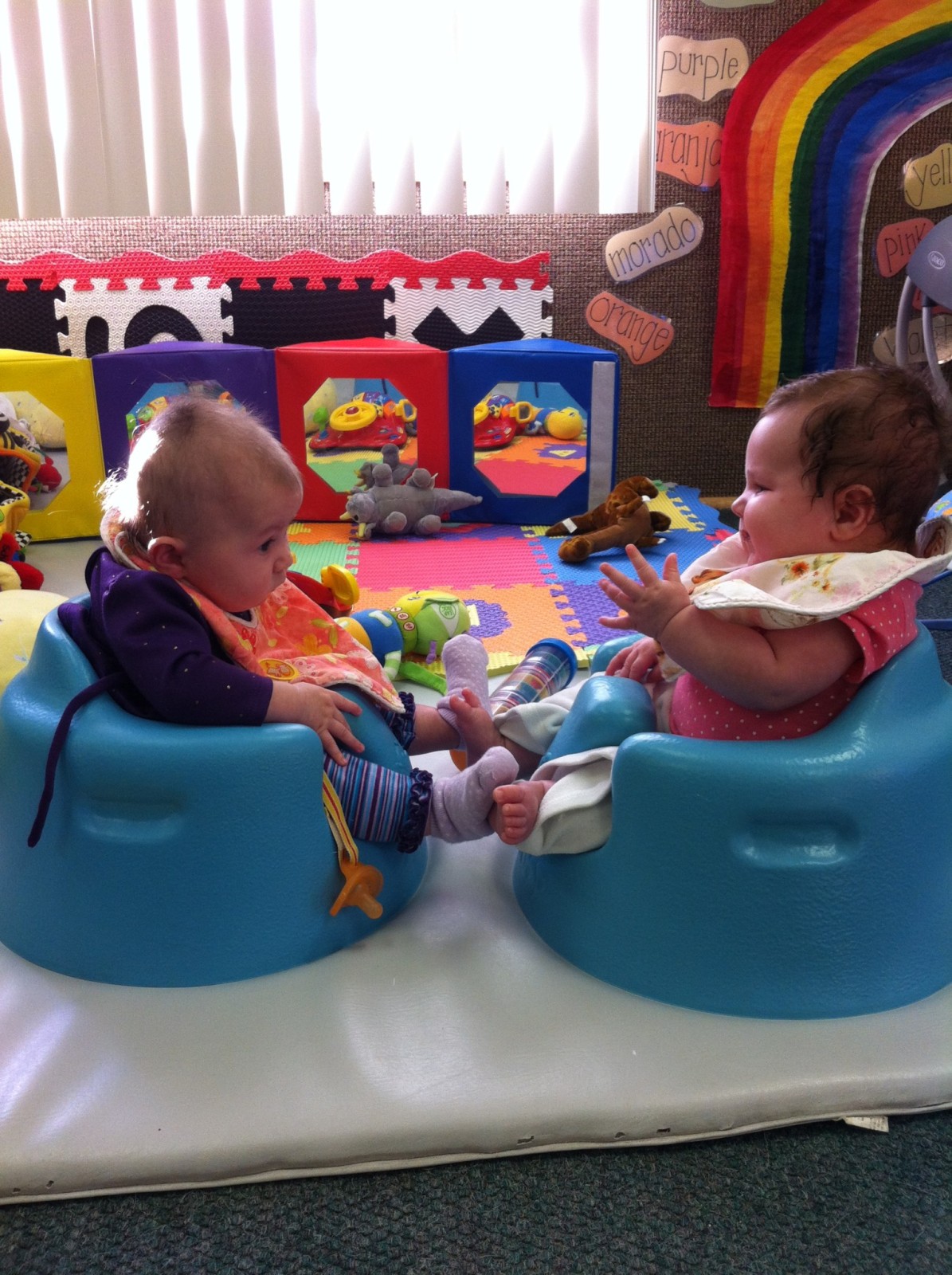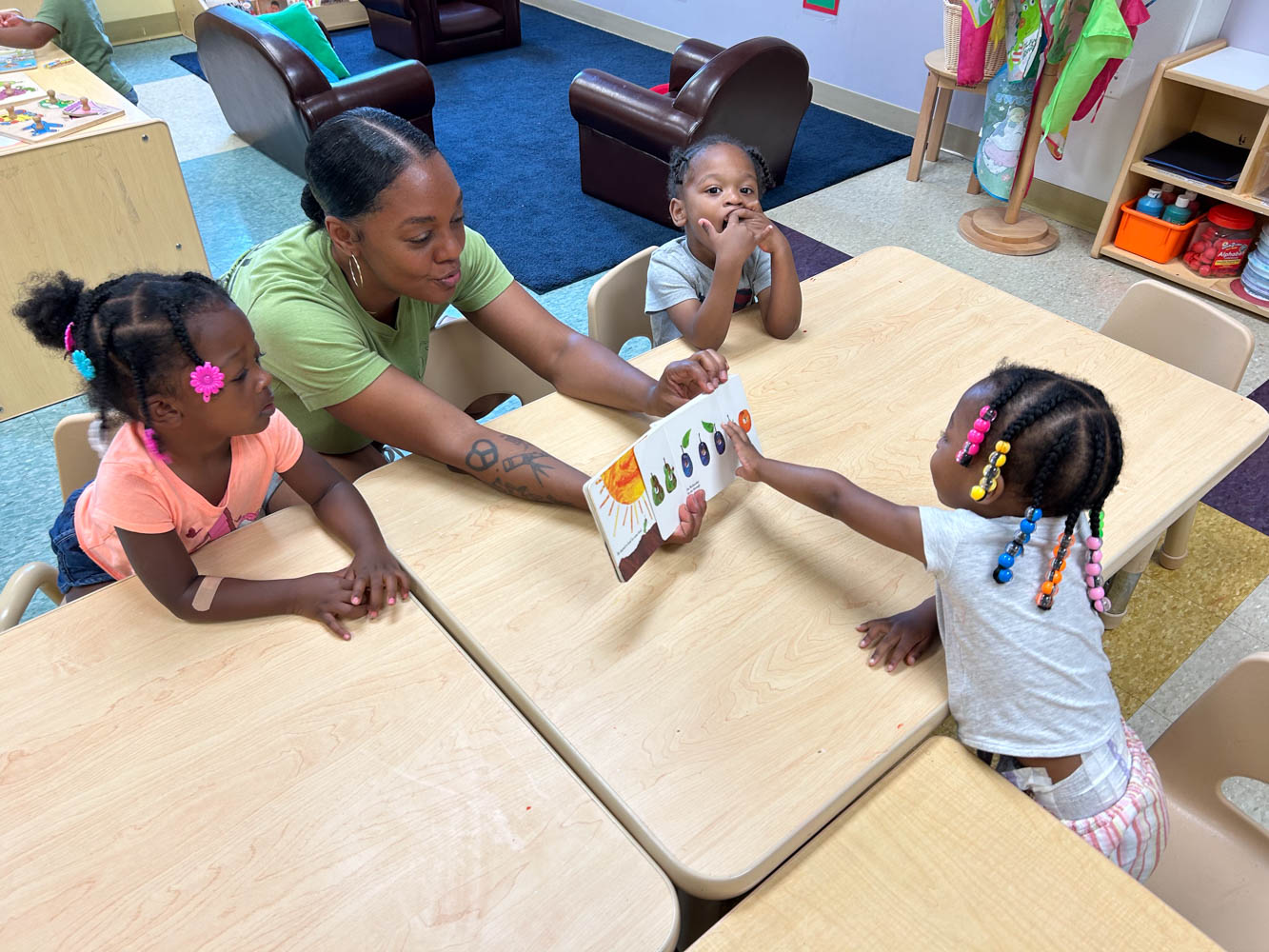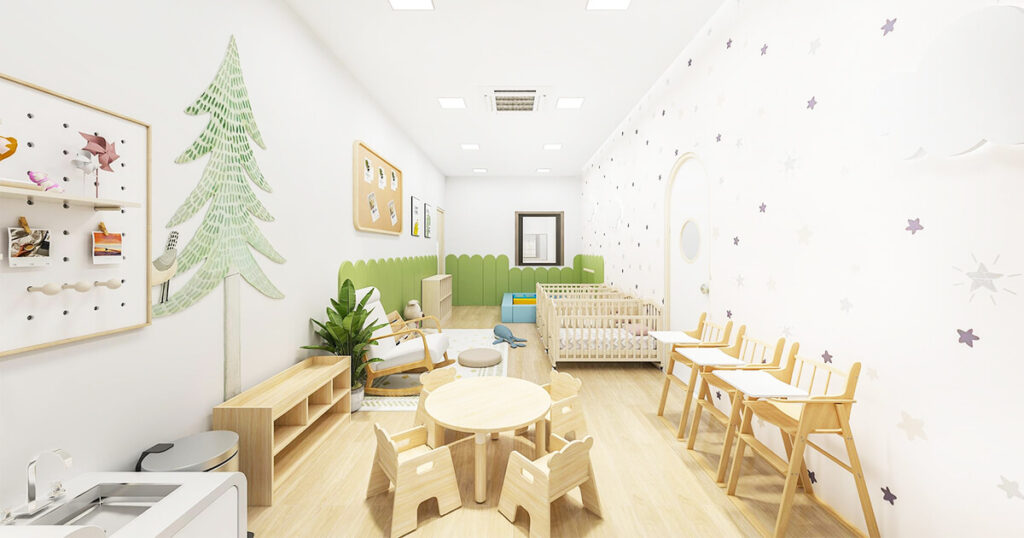What To Look For When Touring A Child Care Center Near You
The Function of Day Care in Fostering Social Abilities and Early Learning
Daycare works as a substantial environment for kids, assisting in crucial social interactions that promote early knowing. In this organized setup, children involve with caregivers and peers, creating necessary communication and participation abilities. As they navigate play and numerous activities, they find out to solve disputes and construct psychological knowledge. Understanding the nuances of these interactions discloses the profound impact daycare has on a youngster's advancement, shaping their future connections and scholastic readiness. What details skills do youngsters get in this setup?
The Importance of Social Interaction in Childcare
While many moms and dads recognize the relevance of very early childhood years education, the function of social interaction in day care is often taken too lightly. Childcare settings supply children with invaluable opportunities to involve with peers, promoting vital social skills. Throughout these developmental years, children learn to navigate numerous social characteristics, such as sharing, cooperation, and conflict resolution. Interacting with diverse age groups and characters enhances their capability to adjust to different environments and develop compassion towards others.

Building Interaction Abilities With Play
Play serves as an effective medium for youngsters to develop crucial communication abilities in daycare settings. Via various play activities, youngsters engage in discussions, share their ideas, and learn to pay attention to others. Parlor games, for example, urge them to use language in various contexts, advertising vocabulary expansion and understanding of social hints.

Additionally, narration throughout play allows children to share emotions and concepts, helping them develop narrative abilities and confidence in their spoken expressions. On the whole, play not just acts as a satisfying leisure activity but also as a necessary system for developing the communication abilities needed for effective social communications in later life.
Encouraging Collaboration and Teamwork
Teamwork and synergy are vital abilities that children can cultivate in day care settings. With various group tasks, such as developing tasks or collaborative video games, children learn to share duties and pursue typical goals. These interactions cultivate an understanding of the importance of paying attention to others, negotiating functions, and compromising when required.
In daycare setups, caretakers typically develop possibilities for youngsters to engage in teamwork by motivating them to join team tasks. This not only assists children establish social bonds but also cultivates a feeling of belonging and neighborhood.
As they browse these participating experiences, youngsters obtain important understandings into the dynamics of working with peers. They learn to value varied perspectives and identify that each participant contributes distinctively to the team initiative. Inevitably, these early lessons together and synergy lay the groundwork for healthier connections and effective partnership in future social and academic setups.
Structured Understanding Activities and Cognitive Advancement
Structured discovering activities play an indispensable function in fostering cognitive development in children (Daycare North York). These activities, that include puzzles, storytelling, and hands-on experiments, promote essential thinking and problem-solving skills. In a daycare setting, organized learning encourages youngsters to engage with their peers, improving their ability to procedure information and recognize various ideas
With led play and interactive jobs, kids develop foundational skills such as numeracy and proficiency. For instance, activities centered around numbers can assist children grasp mathematical ideas, while storytelling boosts language acquisition and comprehension. Additionally, organized knowing permits teachers to evaluate developmental development and tailor tasks to specific understanding needs.

Integrating a varied series of structured activities not just promotes cognitive development yet likewise prepares youngsters for future academic success. By offering a well balanced setting that promotes exploration and questions, day care programs play a crucial function fit the cognitive capacities of young students.
Cultivating Psychological Knowledge and Self-confidence
Emotional intelligence and confidence are essential parts of a child's advancement, matching the cognitive abilities promoted through structured understanding tasks. In day care setups, children are given with possibilities to reveal their feelings and engage in social communications, which are critical for constructing psychological understanding. Via directed play and team tasks, children discover to determine their sensations, recognize those of others, and establish empathy.
Interaction with caregivers and peers aids to grow self-confidence and resilience. Positive reinforcement and motivation from grownups equip youngsters to take risks and face challenges, cultivating a sense of success. As they navigate social characteristics, children develop confidence in their abilities to connect, collaborate, and resolve problems - Daycare North York. This caring environment enables the get more progressive development of emotional intelligence, which is crucial for future interpersonal connections and overall health. As an outcome, day care plays a significant role in fostering both psychological intelligence and confidence in kids
Often Asked Inquiries
Exactly How Can Moms And Dads Pick the Right Daycare for Their Child?
Parents must think about variables such as place, staff certifications, safety requirements, educational program, and examines from other parents when choosing Visit Your URL the ideal childcare for their child, guaranteeing it aligns with their kid's developmental requirements and family worths.
What Age Is Best for Beginning Day Care?

How Does Childcare Influence Children's Behavior at Home?
Day care typically positively affects children's habits in your home by boosting social abilities, promoting independence, and motivating psychological policy (Child Care Near Me). Therefore, youngsters may exhibit improved interaction and teamwork, leading to even more harmonious family members dynamics
Are There Any Type Of Downsides to Daycare Presence?
Yes, there are downsides to childcare attendance, consisting of possible splitting up stress and anxiety, direct exposure to health problems, and inconsistent caregiving. These factors can influence a kid's emotional health and adjustment in the house, impacting overall family members characteristics.
Just How Can Moms And Dads Support Social Skills Found Out at Day Care?
Moms and dads can sustain social abilities learned at day care by helping with playdates, urging cooperative activities, modeling favorable communications, talking about feelings, and reinforcing sharing and interaction in your home, thus boosting their kid's social growth and confidence.
Daycare serves as a significant setting for young children, assisting in vital social communications that promote very early knowing. Day care settings provide youngsters with indispensable possibilities to involve with peers, fostering vital social skills. Play serves as a powerful medium for youngsters websites to construct crucial interaction abilities in childcare setups. In daycare setups, youngsters are provided with chances to express their emotions and involve in social communications, which are crucial for constructing psychological understanding. Daycare typically favorably affects youngsters's behavior at home by enhancing social skills, promoting independence, and encouraging emotional guideline.